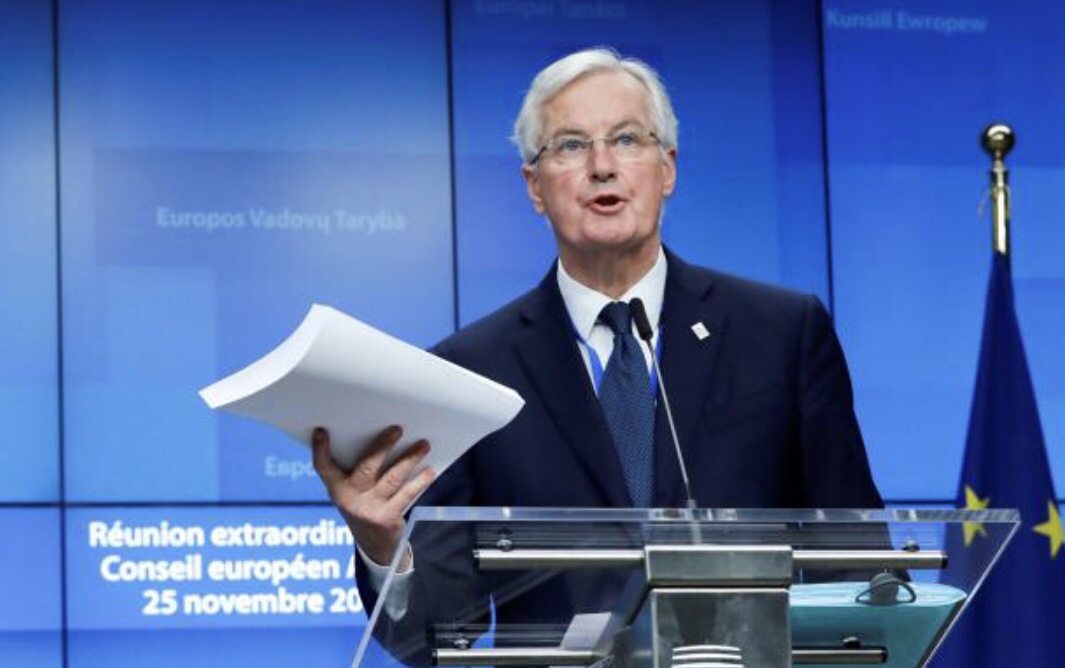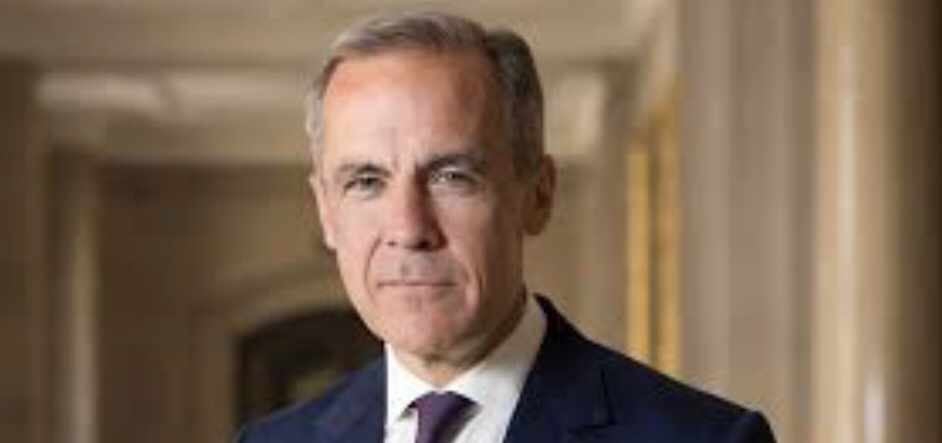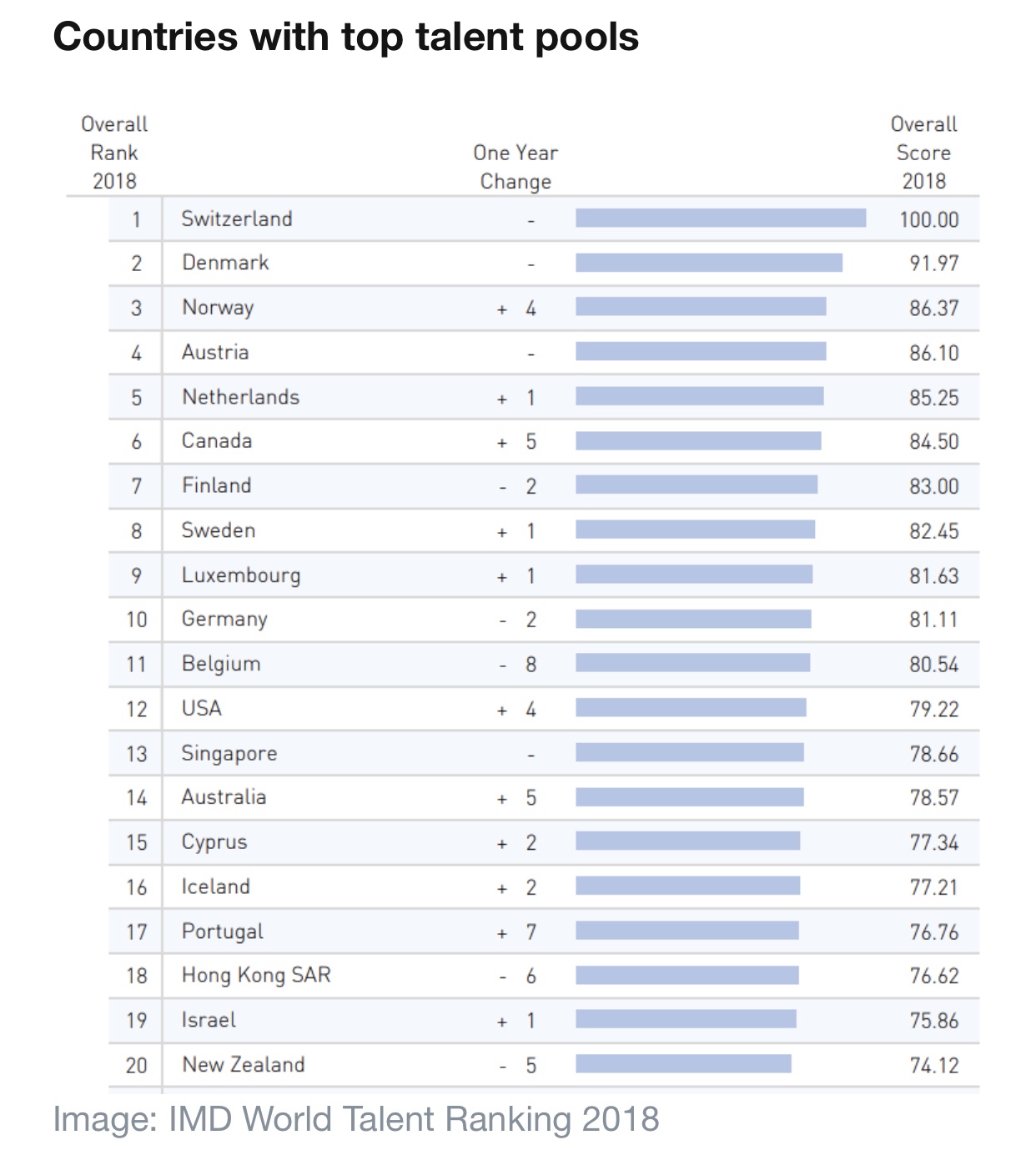The European Union’s Brexit negotiator Michel Barnier told Britain on Thursday the Brexit deal the bloc agreed with Prime Minister Theresa May was the only one possible.
Barnier was speaking to a nearly-empty EU parliament chamber as the bloc awaits the verdict from London where May is trying to sell the deal to her divided parliament, which will vote on it on Dec. 11. The EU insists the Brexit accord sealed after 18 months of talks will not be renegotiated.

“Given the difficult circumstances of this negotiation and given the extreme complexity of all the issues of the British withdrawal, the deal that is on the table … this deal is the only one and the best possible,” Barnier said.
Now is the time for ratification,” he said.
The Bank of England said on Wednesday Britain risked suffering an even bigger hit to its economy than during the global financial crisis 10 years ago if it left the EU without a deal in four months’ time.
“It’s not a question of winners and losers because Brexit is a lose-lose. There is no added value,” Barnier said.
“I am convinced we will be able to work together for a real and unprecedented partnership,” he said of Britain’s future relationship with the EU, talks on which will start after Brexit day on March 29, 2019.
During the EU parliamentary debate on Thursday, Brexit campaigner Nigel Farage said May’s deal would be voted down in the British parliament as “the worst deal in history”.
Barnier received much praise from EU MPs on Thursday for his handling of the Brexit negotiations, a sentiment shared in many EU quarters, beefing the Frenchman’s chances should he run for the top job in the bloc next year.
Source: Reuters
Large parts of the British economy are not ready for a no-deal Brexit, Bank of England governor Mark Carney has said.
Fewer than half of businesses have initiated contingency plans, Mr Carney told BBC Radio 4’s Today programme.

He said the UK would need a transition period to adapt to whatever form of departure from the EU Parliament chose.
He also denied that the Bank’s warning no-deal could lead to a UK recession was intended to scare people into backing his favoured form of Brexit.
Mr Carney told the BBC that “we know from our contacts with business, others know from their contacts, that less than half the businesses in the country have initiated their contingency plans for a no-deal Brexit”.
“All the industries, all the infrastructure of the country, are they all ready at this point in time? And, as best as we can tell, the answer is no,” Mr Carney said.
It is in the interests of the country that there should be a transition to whatever new relationship the UK has with the EU, he said.
He added: “We know issues around the borders, we go to the ports and we know the issues that are there today. So we need some time to get ready for it.”
MPs warned on Wednesday that there was a “real prospect” of “major disruption” at UK ports in the case of a no-deal Brexit, with government plans “worryingly under-developed”.
However, the Department for Transport said the Public Accounts Committee’s conclusions “were not accurate”.
Mr Carney’s comments come after government forecasts warned that the UK would be economically poorer under any form of Brexit, compared with staying in the EU.
Under Theresa May’s Chequers Brexit plan, the UK economy could be up to 3.9% smaller after 15 years compared with staying in the EU, government analysis suggested.
With a no-deal Brexit, the hit to the economy would be 9.3%.
“Our deal is the best deal available for jobs and our economy, that allows us to honour the referendum and realise the opportunities of Brexit,” Mrs May said at Prime Minister’s Questions.
The Bank of England, meanwhile, said on Wednesday that the UK economy could shrink by 8% in the immediate aftermath if there was no transition period, house prices could fall by almost a third, and that the pound could fall by a quarter.
Conservative MP and Brexiter Jacob Rees-Mogg accused Mark Carney of talking down the pound on Wednesday, saying the Bank of England’s warnings tonight “lack all credibility”.
Mr Rees-Mogg said “project fear” had become “project hysteria”.
Source: BBC News
Western Europe is the leading hub for the world’s talent, outperforming other regions in attracting, developing and retaining highly skilled employees.
This is according to the recently released IMD World Talent Ranking 2018 in which Western European nations fill nine of the top 10 places.
The annual survey from the IMD business school – which has campuses in Switzerland and Singapore – assesses the performance of 63 economies across three key categories: 1) Investment and Development, 2) Appeal and 3) Readiness. Their place in the ranking is determined by success in different talent-related areas such as education, training, apprenticeships, language skills, quality of life, remuneration and tax rates.

Switzerland tops the table, as it has done in each of the previous four editions. Despite the country’s high living costs, Switzerland comes first in two of the three key categories – Appeal and Readiness – and fourth in Investment and Development.
Nordic countries occupy the other two places on the global talent podium, with Denmark in second and Norway in third, climbing four places from the previous year. The “readiness” of Norway’s talent pool, together with improvements in public spending on education, has fuelled this year’s rise.
Finland and Sweden are in seventh and eighth place, while Iceland, in 16th, is the only Nordic nation outside of the top 10.
Eastern European countries fared less well with Estonia leading the charge in 28th position, followed by Slovakia and Latvia. Other Eastern European nations occupied the lower half of the table.
Canada is the only non-European nation to make the top 10, surging five places to reach sixth position due to improvements in the quality of its talent pool. Across the border, the US improved in all three categories to climb four places to 12th.
Source; WEF






You must be logged in to post a comment.